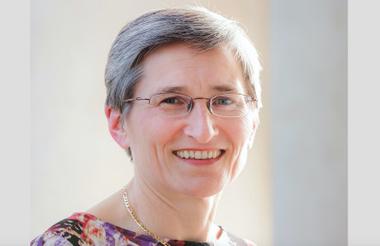Citizens Advice has experienced a “significant drop” in the number of volunteers because some people dislike providing advice from home, its CEO said last week.
Clare Moriarty was speaking at NPC’s conference where she revealed that the shift to remote volunteering had led to fewer people willing to provide advice.
“We’ve seen a quite significant drop in the number of volunteers through the pandemic, because the model of service that we provide has changed hugely,” she said.
Previously, around 60% of support on a one-to-one basis was done in-person, but that shifted to being 100% remote, using telephone, online chat and email.
Moriarty said: “Volunteer advisers were asked to provide advice from home; they were equipped with the necessary technology to do that, but it’s a very different experience for volunteers who have been used to working in an office environment with people around who they can call on.”
This means that it was a “bigger ask, and some people decided that it wasn’t for them”. Others continued for a while before stopping.
Now the charity is asking itself: “How do we rebuild our volunteer base and whether we need to think about the kind of roles that we ask volunteers to take on."
Moriarty said this experience was similar to other charities and highlighted work being done on a future of volunteering project.
Disconnect between high CEO pay and volunteers
Meanwhile, Indy Johar, executive director of Dark Matter Labs, suggested that large charities should reflect on the high pay for leaders and the message this sends to volunteers.
“I think the relationship between the volunteer economy and the gift economy, and the financially paid economy needs to be re-compacted,” he said.
He said there was an issue around openness about high salaries, which has led to a break down in trust.
He charities should be “talking about that more transparently”.
Johar added: “We need to start to talk more clearly about the pay that is happening at the higher end of the charitable sector, which is effectively earning near commercial wages.
“I think that’s a problem, and I think we need to be honest with ourselves.”
Related articles












